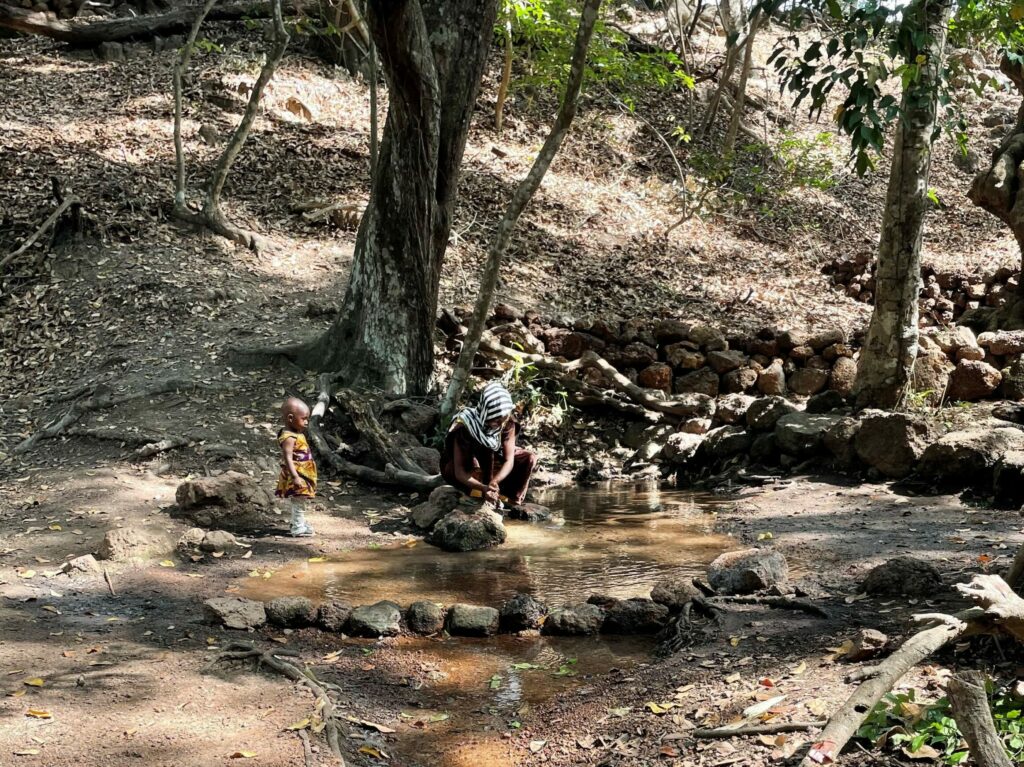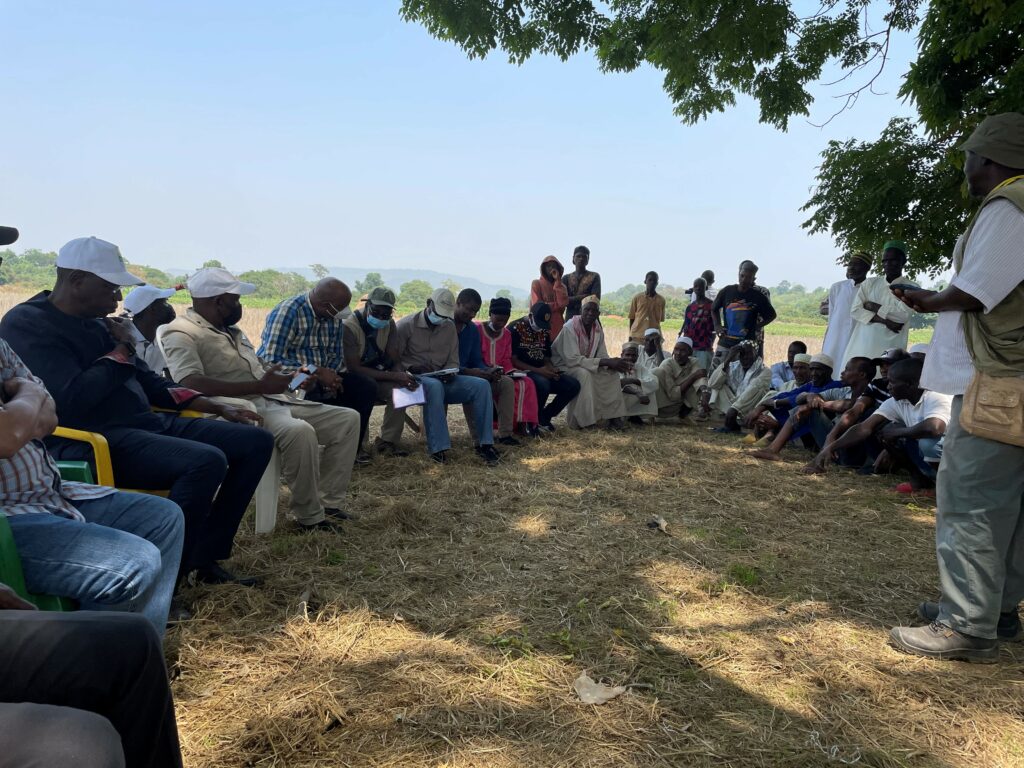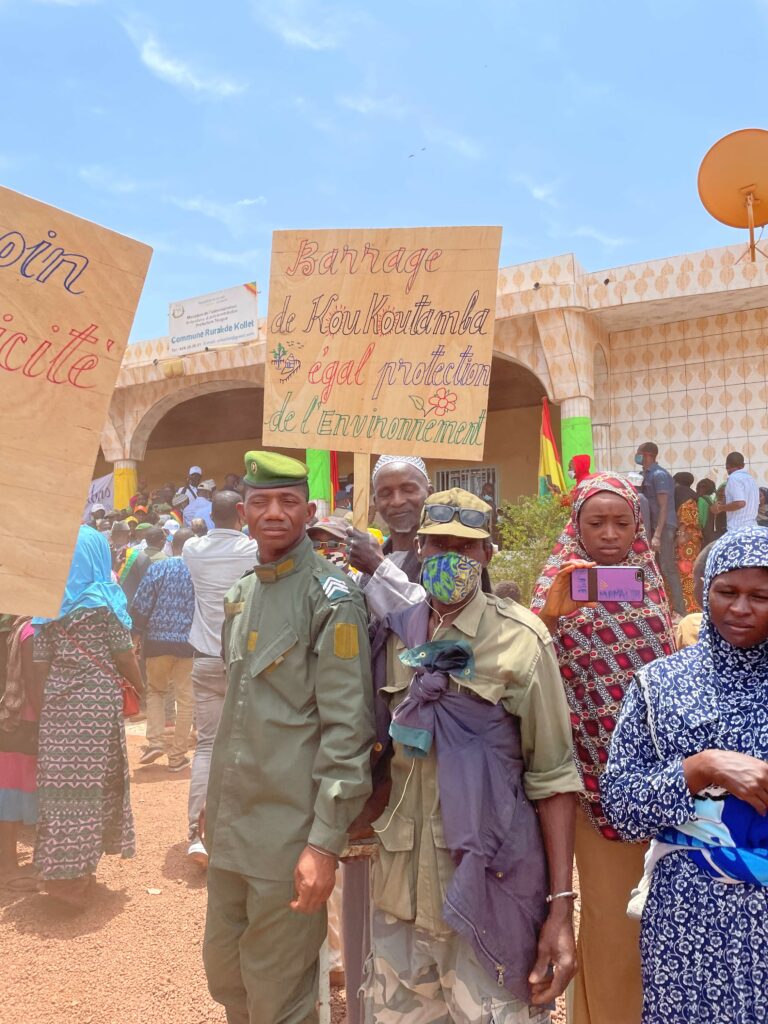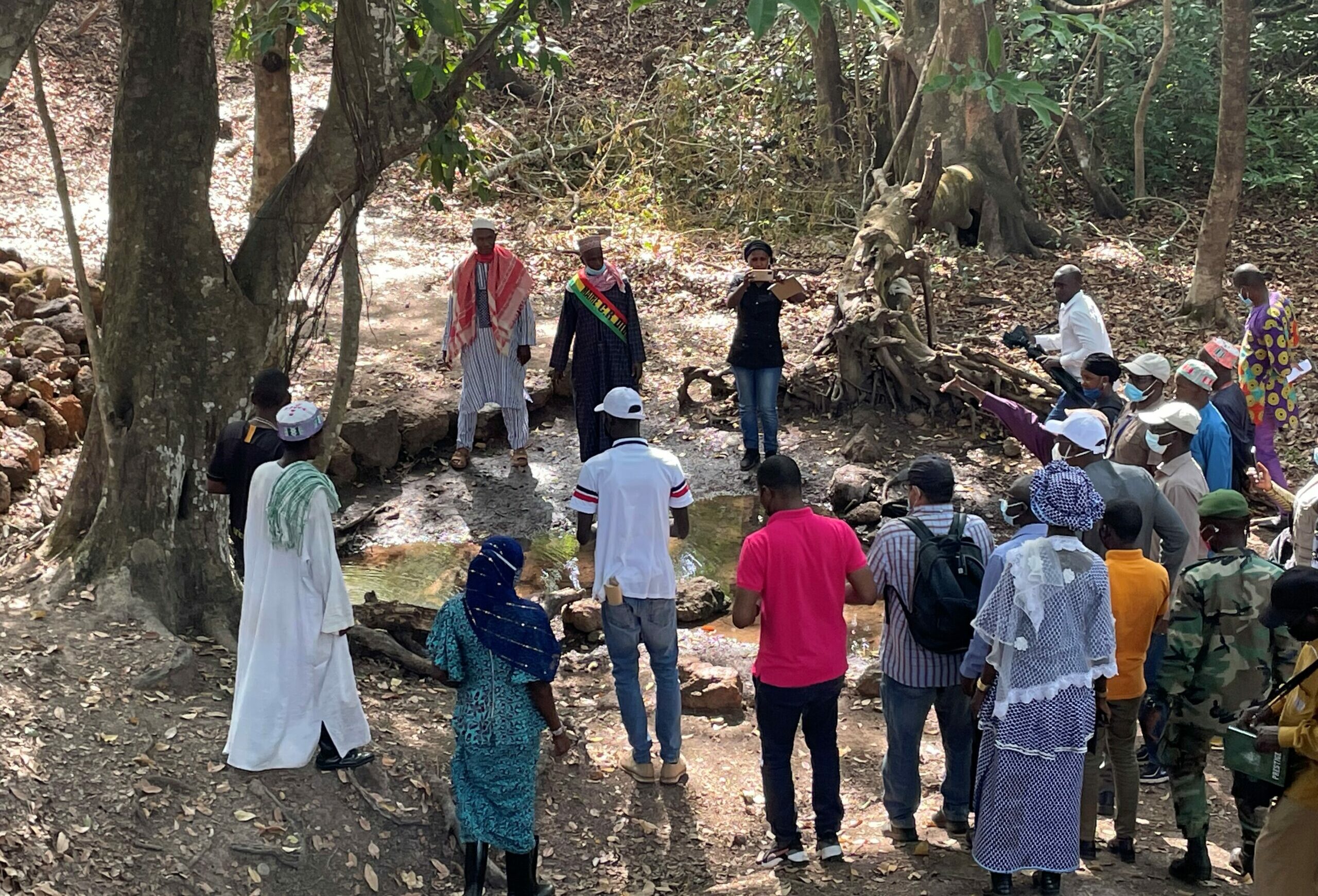In 2021 and 2022, The Bridge Tank took part in two field missions in the Fouta Djallon, in northern Guinea. These forested highlands, commonly referred to as the water tower of West Africa, are home to the headsprings of some the region’s largest rivers, i.e. the Senegal River, the Niger River and the Gambia River. They offer a reservoir of biodiversity constituting the strategic depth of the Great Green Wall in the Sahel. These missions led by our board member Hamed Diane Semega, then High Commissioner of the Senegal River Basin Development Organisation (OMVS), with the participation of Joel Ruet, President of The Bridge Tank, allowed us to collect valuable testimonies about the challenges faced by local populations and the degradation of the Fouta Djallon’s ecosystems.
The field missions were instrumental in structuring our roadmap for the preservation of Fouta Djalon, which we presented alongside Initiatives for the Future of Great Rivers (IFGR) and OMVS during a side event at the UN 2023 Water Conference, and our policy brief on hydro-diplomacy.
These two field missions in the Fouta Djallon highlands documented the decline of the Senegal River’s headwaters and the dramatic drop in their water levels. Just a few decades ago, a man could drown in the deep pools of the springheads. Today, only small puddles remain in these very same locations. The Bridge Tank accompanied OMVS and its high commissioner Hamed Semega, founding board member of The Bridge Tank, on what was the first visit by an OMVS high commissioner to the Senegal River springheads.
In February 2022, Hamed Diane Semega, accompanied by Guinea’s Minister of Energy, Hydraulics and Hydrocarbons, Ibrahima Abe Sylla, the Director of the Guinean OMVS Unit, Soufiana Dabo, and the Director of SOGEOH (Société de Gestion de l’Énergie des Ouvrages du Haut Bassin du Fleuve Sénégal en Guinée), Souleymane Dravé, together inaugurated the premises of the future Environmental Documentation and Archiving Centre in Labé, Guinea. The center will play a key role in efforts to preserve the Fouta Djallon.
Protecting and restoring ecosystems


Local populations: the first victims of the springs’ disappearance
These missions revealed the many challenges faced by the people of the Fouta Djallon. Often stigmatized and accused of drawing excessively on the waters of spring heads and contributing to deforestation, local communities are in fact the first victims of the death of the springs.
In this sparsely populated area, access to water is a daily struggle. The mission found that villages are often far from the springs and the forests that shelter them. Populations suffer from a cruel lack of water. Moreover, the water is very often highly turbid and has a high concentration of earth, making it unfit for consumption.
Between the two missions, OMVS equipped some of these villages with wells to tap into groundwater resources, notably in Soulamayo, the village closest to the Senegal River’s dried-up geographical source.



Agriculture and hydropower: A long-term development vision
The region and its populations require a long-term vision and solutions to enable a more sustainable development that takes into account both their needs and the issues of preserving and restoring forest and water ecosystems. Such development will notably involve the (re-)adoption of agricultural methods adapted to changing demographic and environmental conditions, and the advancement of electrification.
In Koukoutamba, local residents expressed their support for the next major OMVS hydroelectric dam project currently being developed in the municipality. The Koukoutamba hydroelectric dam, located on the Bafing River in the upper Senegal River basin, will have a capacity of 294 MW and will be the largest dam built by OMVS. Financed by the Chinese Exim Bank for a total of over $800 million, and developed by the Chinese company Sinohydro, the project will contribute to the economic development and electrification of rural areas in the region.




A lasting commitment
The Bridge Tank’s commitment in favour of the preservation of the Fouta Djallon highlands has grown steadily ever since. In 2021, this commitment was reflected in the organisation of special session at the World Water Forum in Dakar, Senegal, titled “The Fouta Djallon Highlands : visions and actions to safeguard the water tower of West Africa” in partnership with OMVS, OMVG and Initiatives for the Future of Great Rivers (IFGR). At the UN 2023 Water Confernece in New York in March 2023, The Bridge Tank and IGFR intensified their cooperation in favour of the preservation of the Fouta Djallon by raising the alarm through the publication of an Op-ed co-signed by Erik Orsenna, Chairman of IGFR, Joel Ruet et Hamed Diane Semega, and through the organisation of an official side event of the UN 2023 Water Conference in partnership with OMVS and with the official support of France and Guinea.



